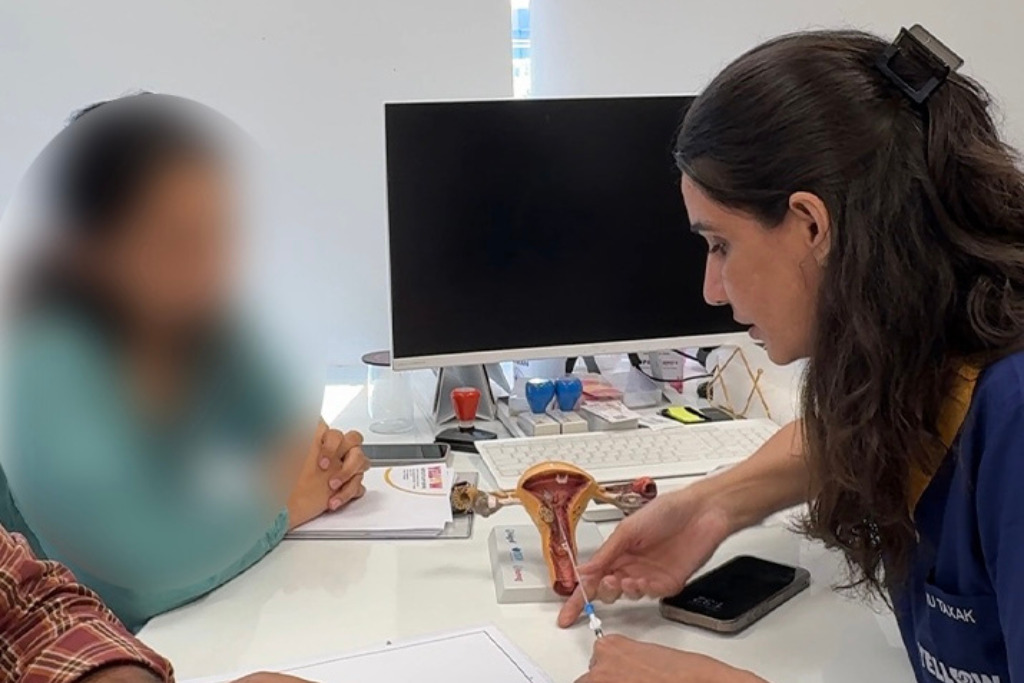Have you ever noticed how stress disrupts your body’s rhythm regularly and creates distance from your partner?
You are not alone; many men experience hormonal shifts due to physical and psychological stress, impacting sperm quality and making conception challenging. If conceiving feels harder than you expected, explore the surprising link between male infertility and stress with this blog of the IVF Centre in Gurgaon. With Yellow IVF, you can reclaim your hope of parenthood.
How Does Stress Impact Male Infertility?
Stress occurs when your body reacts to feelings of fear, worry, or excessive pressure due to family problems, work-related issues, or health concerns.
Male infertility and stress are closely linked; when a man experiences excessive stress, his body produces cortisol. Increased stress hormone levels disrupt the balance of other essential hormones, such as testosterone, and directly impact sperm production. As a result, sperm movement, count, and quality decline.
Apart from this, chronic stress also leads to unhealthy habits for men, like excessive drinking, smoking, poor eating habits, and inadequate sleep, all of which directly harm fertility. This can result in low sex drive, erectile problems, and difficulties conceiving. Therefore, managing stress is essential for every man trying to conceive.

What are the Common Signs of Stress and Male Infertility?
According to doctors of the Advanced IVF Centre in Gurgaon, men struggling with infertility issues due to excessive stress may experience:
- Excessive tiredness or dizziness
- Reduced sexual desire
- Difficulty with ejaculation
- Sleeping issues
- Persistent feelings of sadness, anxiety, or irritability
- Sudden appetite changes and weight fluctuations
- Abnormal breast growth
- Burnout or irregular work habits
- Decreased body or facial hair due to hormonal imbalances
What are the Causes of Male Infertility?
- Sperm Quality
Abnormal morphology, poor motility, and low sperm count directly impact male infertility. Specialists of the IVF centre in Gurgaon researched that lifestyle factors like excessive alcohol consumption, smoking, and substance abuse can contribute to these issues.
- Stress
Chronic stress can lead to feelings of sadness, fatigue, and irritability, disrupting sleep and energy levels. Moreover, excessive stress weakens the immune system and the ability to have a child. Hence, managing stress is crucial for overall health and conception.
- Hormonal Imbalance
Hormonal imbalance involves high estrogen or low testosterone levels. It disrupts the hormonal balance, which is essential for optimal sperm production in males. Certain conditions, like pituitary disorders or hypogonadism, can contribute to infertility issues.
- Varicoceles
Varicocele, a condition where veins in the scrotum become enlarged, is another cause of male infertility, affecting both sperm quality and production. Contact a leading fertility centre in Gurgaon and surgically treat varicocele to improve your fertility outcomes.
- Medical Conditions
Underlying medical conditions, such as autoimmune diseases or diabetes, can impact your sperm health. Sexually transmitted infections can block sperm pathways, cause inflammation, and potentially lead to permanent infertility.
Who Can Be Affected by Male Infertility?
Males with certain factors may have higher chances of infertility, including:
- Age over 40
- Unhealthy BMI, particularly being overweight or obese
- Exposure to radiation and environmental toxins
- Consuming substances like alcohol, tobacco, or marijuana
- Taking testosterone supplements
- Using supplements or steroids to increase muscle mass
How to Reduce Stress Naturally to Improve Male Fertility?
- Practice deep breathing exercises regularly
- Get 8 hours of sleep to aid body recovery
- Engage in gentle exercises like yoga, walking, swimming, and light stretching.
- Eat a healthy diet
- Communicate openly with your partner
- Avoid prolonged screen time, excessive work, and loud environments
- Enjoy hobbies like gardening or reading to reduce stress
Final Words
For couples facing male infertility, IVF involves fertilising an egg with sperm outside the body and transferring the embryo to the uterus. On the contrary, IUI involves directly introducing sperm into the uterus to facilitate fertilisation.
Contact the best IVF centre in Gurgaon, Yellow IVF, for expert guidance on infertility challenges and achieve parenthood.




